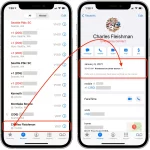Reverse phone lookup services have become increasingly popular as people seek to identify unknown callers, verify contact information, and protect themselves from spam or fraudulent calls. These services rely on various data sources to provide accurate information about phone numbers. In this comprehensive article, we’ll explore the mechanics of reverse phone lookup, the role of data brokers, compliance requirements, and common use cases.
Data Sources for Reverse Phone Lookup
Public Directories
Public directories, such as the White Pages and Yellow Pages, contain publicly available information about phone numbers and their associated owners. These directories have been a staple for decades, providing basic details like names and addresses. When you search for a phone number, reverse lookup services query these directories to retrieve relevant records.
Online Listings
Online directories aggregate data from various sources:
- Websites: Online platforms compile phone numbers and addresses from public records, business listings, and user submissions. Websites like AnyWho, TruePeopleSearch, and 411.com offer extensive databases accessible through reverse lookup services.
- Social Media Profiles: Platforms like Facebook, LinkedIn, and Instagram also contribute to the data pool. Users often link their phone numbers to their profiles, allowing reverse lookup services to extract additional context. For example, if someone has their phone number listed on their LinkedIn profile, the service can associate that number with their professional identity.
How Reverse Phone Lookup Works
When you enter a phone number into a reverse lookup service:
Query Submission
- You input the phone number you want to look up.
- The service queries its database or external sources based on the provided number.
- It searches for matching records associated with that number.
Data Retrieval
- The service retrieves relevant information from its data sources.
- It cross-references multiple databases to ensure accuracy.
- The retrieved data includes details such as the owner’s name, address, and sometimes additional context (e.g., social media profiles).
Presentation of Results
- The service compiles the retrieved data into a comprehensive report.
- You receive a detailed summary of the information associated with the queried phone number.
Common Uses of Reverse Phone Lookup
Reverse phone lookup services serve various purposes:
- Identifying Missed Calls: Users can determine who called them from an unknown number.
- Verifying Contact Details: Confirm whether a given number matches an individual’s name or address.
- Investigating Potential Fraud or Spam Calls: Identifying suspicious or unwanted callers.
Role of Data Brokers in Collecting and Selling Information
Data brokers play a significant role in reverse phone lookup services:
- They aggregate vast amounts of personal data from various sources.
- Brokers collect information from public records, online directories, social media platforms, and other databases.
- Reverse lookup services often purchase data from these brokers to enhance their databases.
How Reverse Lookup Services Use APIs for Data Retrieval
Many services use APIs (Application Programming Interfaces) to access external data sources:
- APIs allow seamless communication between different systems.
- Services connect to APIs provided by public directories, carrier databases, and other relevant platforms.
- Real-time API calls retrieve up-to-date information for accurate results.
Compliance Requirements for Reverse Lookup Services
Privacy Implications
- Critics argue that these services infringe on privacy rights by revealing personal information without explicit consent.
- However, much of the data accessed is publicly available through directories or online listings.
Legal Regulations
- Laws regarding reverse phone lookup vary by country and jurisdiction.
- Some countries restrict access to certain types of data (e.g., mobile carrier databases).
- Services must comply with applicable privacy laws and ensure responsible use of collected information.
Ethical Use of Reverse Phone Lookup Services
Legitimate Purposes
- Use reverse phone lookup responsibly for legitimate purposes:
- Identifying missed calls from unknown numbers.
- Verifying contact details.
- Investigating potential fraud or spam calls.
- Avoid using these services for stalking, harassment, or illegal activities.
Transparency and Consent
- Services should be transparent about their data collection practices.
- Users should be aware that their information may be included in public directories unless they opt out.
In summary, reverse phone lookup services provide valuable assistance by accessing data from public directories, online listings, carrier databases, and crowdsourced feedback. Users must balance the benefits with privacy considerations while adhering to legal guidelines when using these services .



